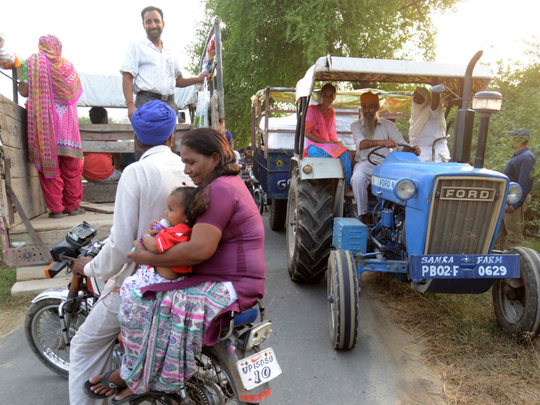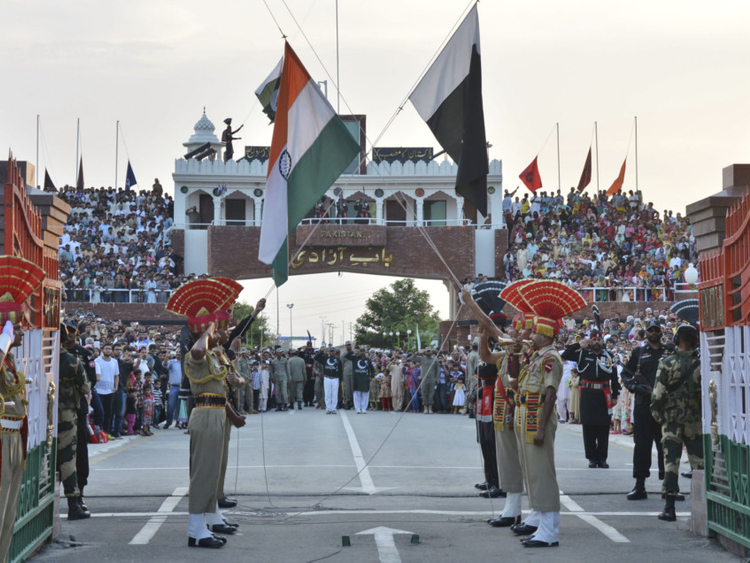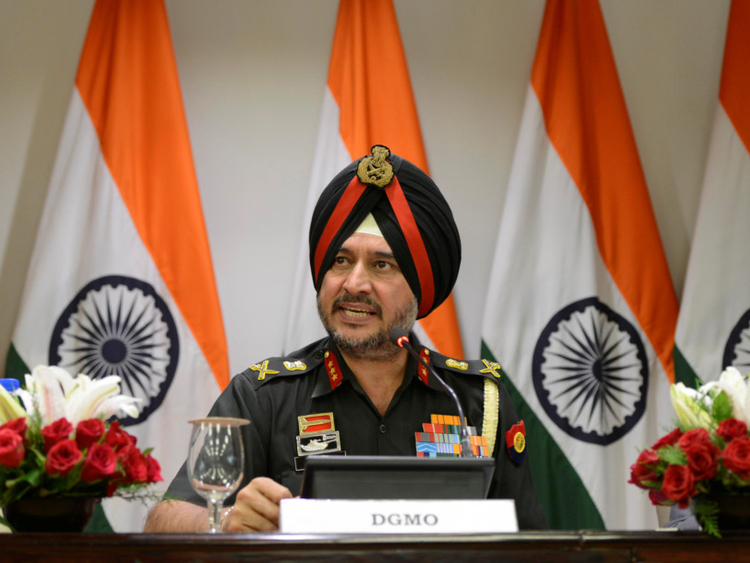
New Delhi: India has carried out surgical strikes across the Line of Control (LoC) in Jammu and Kashmir, inflicting significant damage to seven militant camps across the border.
The Indian army’s “surgical strikes” began after midnight on Wednesday and continued until dawn, army sources told Gulf News on Thursday, adding dozens of militants were killed.
India moved troops to target seven different camps in Pakistan-administered Kashmir where militants had been placed to infiltrate India and carry out attacks within Kashmir as well as other major metros.
The surgical strikes were recorded on cameras — the government will decide whether and when to release the footage, including some obtained through drones — said the defence sources.
“The surgical strikes were conducted up to 3 kilometres in Pakistani territory, in terrain that included hills, forests and mountains,” army sources said.
“The strikes used para-commandos and helicopters. There were no Indian casualties.
“A huge number of terrorists were killed — each launch pad that was attacked held at least 10 terrorists and an equal number of guides and other assistants.”
Army Director-General of Military Operations (DGMO) Lieutenant General Ranjit Singh told journalists on Thursday that Pakistan was informed — in keeping with protocol — of the cross-border strike and that the action came after a weeklong surveillance of the places where the militants were positioned to infiltrate into India.
“Based on specific and credible inputs that some terrorist teams had positioned themselves at launch pads along the Line of Control, to carry out infiltration and conduct terrorist strikes inside Jammu and Kashmir and in various metros in other states, the Indian Army conducted surgical strikes at several of these launch pads to pre-empt infiltration by terrorists. The operations were focused on ensuring that these terrorists do not succeed in their design to cause destruction and endanger the lives of our citizens,” Lt General Singh said.
“During these counter-terrorist operations, significant casualties were caused to terrorists and those providing support to them. The operations aimed at neutralising terrorists have since ceased. We do not have any plans for further continuation. However, the Indian Armed Forces are fully prepared for any contingency that may arise,” he added.
The DGMO was flanked by Ministry of External Affairs spokesperson Vikas Swarup in a rare press conference on Thursday that took place after a meeting of the Cabinet Committee on Security (CCS), which was presided over by PM Modi.
Neither Singh nor Swarup took any questions from the media.
The CCS was attended by Home Minister Rajnath Singh, External Affairs Minister Sushma Swaraj, Defence Minister Manohar Parrikar and National Security Adviser Ajit Doval.
Meanwhile, the northern Indian state of Punjab was on maximum alert on Thursday while villagers close to the border with Pakistan have been told to move to safer locations. “Punjab is in a state of maximum alert,” Harcharan Bains, the adviser to Chief Minister Parkash Singh Badal, said.
He said appropriate steps were being taken to ensure the safety of people in the border areas with Pakistan. Bains said the state cabinet would meet on Thursday evening, to be chaired by Badal, to take stock of the situation and take appropriate action.
The Punjab government has ordered the evacuation of villages in a 10km belt along the border with Pakistan following the escalation of tension.
All schools and other institutions in the border belt have been ordered shut. All leave of Punjab Police and medical personnel in the border areas has been cancelled. Punjab shares a 553km border with Pakistan and its border districts include Amritsar, Gurdaspur, Tarn Taran, Ferozepur, Faridkot, Abohar and Fazilka.
A crucial meeting to review the Most Favoured Nation Status granted by India to Pakistan in 1996 was, however, postponed to next week.
The strikes are the first major military action taken by India after terrorists from Pakistan crossed into an army camp in Uri in Kashmir earlier this month. 18 soldiers were killed in that attack. Prime Minister Narendra Modi had pledged that the attack will not go unpunished.
Neither side’s account could be independently verified.
India’s disclosure of such strikes was unprecedented, said Ajai Sahni of the Institute for Conflict Management in New Delhi, and sent a message not only to his own people but to the international community.
“India expects global support to launch more focused action against Pakistan,” Sahni told Reuters. “There was tremendous pressure on the Indian prime minister to prove that he is ready to take serious action.”














